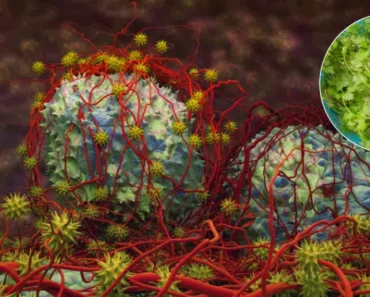I first started paying attention to alkaline foods when I noticed how much better I felt after eating a more plant-based, mineral-rich diet.
My energy levels were more stable, my digestion improved, and even my skin looked healthier.
It turns out there’s science behind this: while our bodies naturally regulate pH, the foods we eat can support or strain that process and a more alkaline diet can reduce inflammation, improve energy, and support overall wellness.
Alkaline foods are those that leave an alkaline “ash” after digestion, helping to balance the body’s internal pH environment.
Most of them are fruits, vegetables, and certain seeds and herbs. Here are some of the most alkaline foods you can eat and why they’re worth adding to your daily diet.
1. Leafy Greens
Whenever I feel low on energy or sluggish, I add more leafy greens to my meals – and the difference is almost immediate. Greens like spinach, kale, Swiss chard, and watercress are among the most alkaline foods on Earth.
They’re loaded with chlorophyll, which helps oxygenate the blood and support detoxification, and they’re rich in magnesium, calcium, and potassium – all vital for pH balance.
I try to include a handful of raw or lightly steamed greens every day, whether in salads, smoothies, or sautéed as a side dish.
2. Cucumbers
Cucumbers are more than just refreshing – they’re one of the most alkalizing vegetables you can eat. They’re about 95% water, which helps flush toxins and support kidney function, and they provide a gentle, hydrating boost to your body’s pH balance.
I often slice cucumbers into water or add them to salads for an easy, natural way to keep my system alkaline and hydrated.
3. Avocados
Avocados are a perfect example of a nutrient-dense alkaline food. They’re rich in healthy fats, fiber, and potassium, all of which support cardiovascular health and proper electrolyte balance. Despite their creamy texture, they actually help neutralize acidity in the body and reduce inflammation.
I like to eat them mashed on whole-grain toast, sliced into salads, or blended into smoothies for a creamy, alkalizing boost.
4. Lemons
It might seem strange to include lemons – after all, they taste acidic. But once metabolized, they have one of the most alkalizing effects of any fruit. Lemons help stimulate digestion, support liver detoxification, and aid in balancing internal pH levels.
One of my favorite daily rituals is drinking warm lemon water in the morning or adding fresh lemon juice to meals throughout the day.
5. Broccoli
Broccoli is a powerhouse for many reasons, but one of its hidden strengths is its alkalizing effect. It’s high in fiber, antioxidants, and minerals like calcium and magnesium. These compounds help reduce inflammation, support detoxification pathways, and maintain healthy pH levels.
I usually steam or roast broccoli several times a week – it’s one of the easiest ways to add more alkaline vegetables to my diet.
6. Celery
Celery is another high-water, high-mineral food that’s excellent for balancing acidity. It contains natural sodium, potassium, and antioxidants that help flush out toxins and support kidney and liver function – two organs crucial for pH regulation.
I often juice celery on its own or combine it with cucumber and lemon for a powerful alkaline drink.
7. Almonds
Not all nuts are alkaline, but almonds are one of the exceptions. They provide healthy fats, magnesium, and protein, and they’re known to help reduce acidity in the body. Eating a small handful as a snack or blending them into smoothies is a simple way to add more alkaline nutrients to your day.
Switching from conventional snacks to almonds helped me balance my energy levels and keep blood sugar steady.
8. Watermelon
Watermelon is one of the most alkalizing fruits you can eat, and it’s especially helpful for supporting hydration and detoxification. Its high water and mineral content help flush acidity and support kidney function. It’s also rich in lycopene and antioxidants that fight inflammation.
I often eat watermelon as a refreshing afternoon snack or blend it into a hydrating summer drink.
9. Garlic
Garlic is well-known for its antimicrobial and immune-boosting properties, but it’s also an alkaline-forming food. It helps reduce inflammation, supports liver detoxification, and even promotes better gut health – all of which contribute to a more alkaline internal environment.
I use garlic in almost every savory dish I cook, not just for flavor but also for its powerful health benefits.
10. Parsley
Parsley might seem like a simple garnish, but it’s one of the most alkalizing herbs you can add to your meals. It’s packed with chlorophyll, vitamins A and C, and minerals that support detoxification and help flush acidity from the body.
I love adding fresh parsley to salads, juices, or even sprinkling it on cooked dishes for an extra nutrient boost.
Adding more alkaline foods to my diet has been one of the easiest and most effective ways to feel better every day. I’ve noticed more stable energy, better digestion, and fewer inflammatory issues – all without making drastic changes.
You don’t need to overhaul your diet overnight. Start by adding a few of these powerful foods to your meals each day.
Over time, they can help balance your body’s pH, support natural detoxification, and bring you closer to vibrant, long-lasting health.






